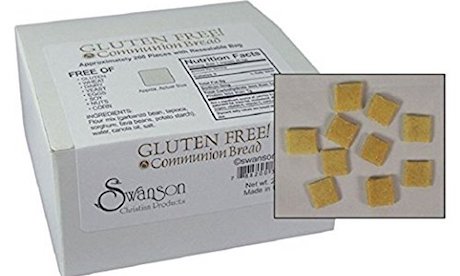These days you can buy gluten free hosts on Amazon… “Baked Gluten Free Communion Bread – Square Shape (Pack of 200)” Or perhaps you might favour “Ener-G Foods Communion Wafers Gluten Free”. Or you can even get a deal bundle made up of two kinds of wafers plus a box of disposable communion cups.
That’s why the Congregation for Divine Worship and the Discipline of the Sacraments sent out its recent letter to Bishops about the bread and wine used for the Eucharist.
The letter notes that “until recently it was certain religious communities who took care of baking the bread and making the wine for the celebration of the Eucharist.” With a much wider variety of suppliers, the letter reminds bishops that they should take responsibility for assuring that these norms are followed.
The letter does not change any of the existing rules about valid materials for the celebration of Mass. Cardinal Sarah’s letter is almost entirely made up of quotes from previous documents.
An earlier letter sent out in 2003 from the Congregation for the Doctrine of the Faith, noting documents from the 1980s and ’90s, recalled that from the Congregation for the Doctrine of the Faith, noting documents from the 1980s and ’90s, recalled that “Hosts that are completely gluten-free are invalid matter for the celebration of the Eucharist.”
“What I think the Vatican mean – and should be saying – is that the Eucharistic host must not be ‘wheat free’ – i.e. made from rice or potato starch,” says Alex Gazzola.
He is a journalist and author with almost 20 years’ experience who specialises in food hypersensitivities, coeliac disease and gut disorders.
“Gluten needn’t – and shouldn’t – come into it. There is no such thing as ‘partially gluten free’ anyway, because the state of gluten-free-ness is binary – it either is or it isn’t. It cannot be in between,” he says.
Their ‘low gluten’ is what we understand as ‘gluten free’ – so there’s no problem.
Existing “gluten free” hosts do contain some gluten but the are low enough to be approved by the Celiac Support Association in the USA which has some of the most stringent guidelines available on what celiacs can safely consume.
Source
Additional reading



